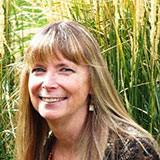UNC Professor to Address Hearing Loss, Prevention at CDC Headquarters
June 20, 2017
University of Northern Colorado Professor Deanna Meinke will be among the featured experts speaking at a Centers for Disease Control and Prevention panel discussion on the global hearing loss epidemic. The discussion will be streamed live from 11 a.m.-noon MDT Tuesday, June 20, from CDC headquarters in Atlanta.

Meinke's presentation will address child and adolescent hearing health. It will be broadcast live at www.cdc.gov/cdcgrandrounds as part of the event, titled "It's Loud Out There: Hearing Health Across the Lifespan."
Meinke serves as an expert consultant to the World Health Organization's Make Listening Safe initiative and is co-director of the Dangerous Decibels national intervention program. She been invited to speak on noise-induced hearing loss and prevention numerous times, including twice at WHO. On Tuesday, she will join fellow experts who will discuss the problem of hearing loss, its causes, prevention strategies, and public health solutions.
According to the CDC, some 360 million people worldwide live with disabling hearing loss and that number is growing. Young and older people are at risk. One in three older adults have hearing loss, and 1.1 billion young people are at risk for hearing loss around the world. Loud noises can cause permanent hearing loss. In addition to loud noises, the daily sounds of life play a role in the decline of the world's hearing health: lawn mowers, recreational vehicles, power tools, and music are some of the culprits. Other causes of hearing loss include aging and certain pharmaceuticals.
While hearing loss is largely preventable, nearly 70 percent of people never or seldom use noise protection. People with hearing loss often are unaware they have a problem. One in four U.S. adults who reported "excellent to good" hearing already have hearing damage. Health professionals recommend avoiding loud noises, wearing hearing protection, and turning the volume down on loud music. Hearing health checks also should be part of routine health screenings.

